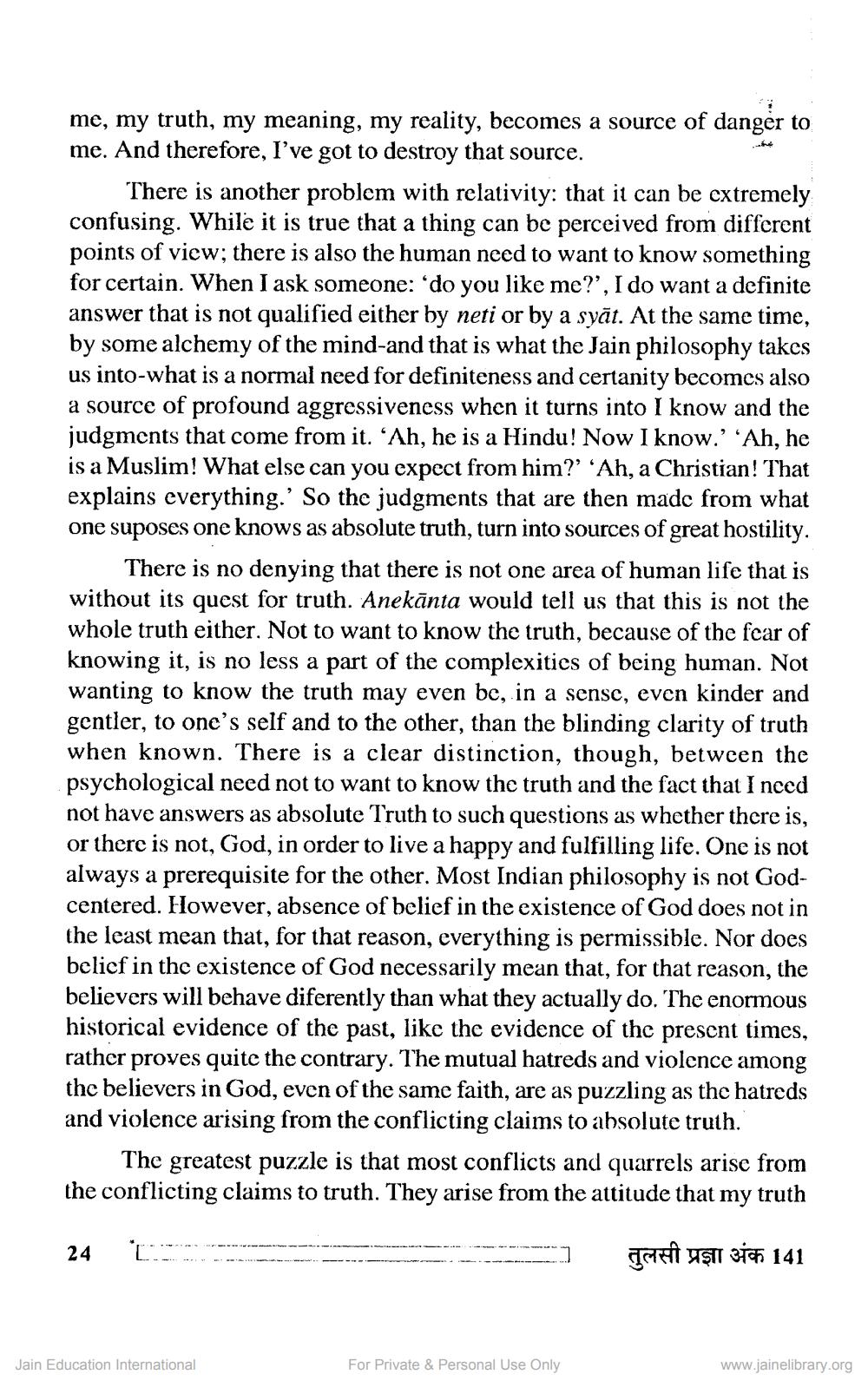________________
me, my truth, my meaning, my reality, becomes a source of danger to me. And therefore, I've got to destroy that source.
There is another problem with relativity: that it can be extremely confusing. While it is true that a thing can be perceived from different points of view; there is also the human need to want to know something for certain. When I ask someone: 'do you like me?', I do want a definite answer that is not qualified either by neti or by a syāt. At the same time, by some alchemy of the mind and that is what the Jain philosophy takes us into-what is a normal need for definiteness and certanity becomes also a source of profound aggressiveness when it turns into I know and the judgments that come from it. "Ah. he is a Hindu! Now I know.' 'Ah, he is a Muslim! What else can you expect from him?” “Ah, a Christian! That explains everything.' So the judgments that are then made from what one suposes one knows as absolute truth, turn into sources of great hostility.
There is no denying that there is not one area of human life that is without its quest for truth. Anekānta would tell us that this is not the whole truth either. Not to want to know the truth, because of the fear of knowing it, is no less a part of the complexities of being human. Not wanting to know the truth may even bc, in a sense, even kinder and gentler, to one's self and to the other, than the blinding clarity of truth when known. There is a clear distinction, though, between the psychological need not to want to know the truth and the fact that I need not have answers as absolute Truth to such questions as whether there is, or there is not, God, in order to live a happy and fulfilling life. One is not always a prerequisite for the other. Most Indian philosophy is not Godcentered. However, absence of belief in the existence of God does not in the least mean that, for that reason, everything is permissible. Nor does belief in the existence of God necessarily mean that, for that reason, the believers will behave diferently than what they actually do. The enormous historical evidence of the past, like the evidence of the present times, rather proves quite the contrary. The mutual hatreds and violence among the believers in God, even of the same faith, are as puzzling as the hatreds and violence arising from the conflicting claims to absolute truth.
The greatest puzzle is that most conflicts and quarrels arise from the conflicting claims to truth. They arise from the attitude that my truth
---
24
D
----
-
-----
-
Trei uşit sit 141
Jain Education International
For Private & Personal Use Only
www.jainelibrary.org




